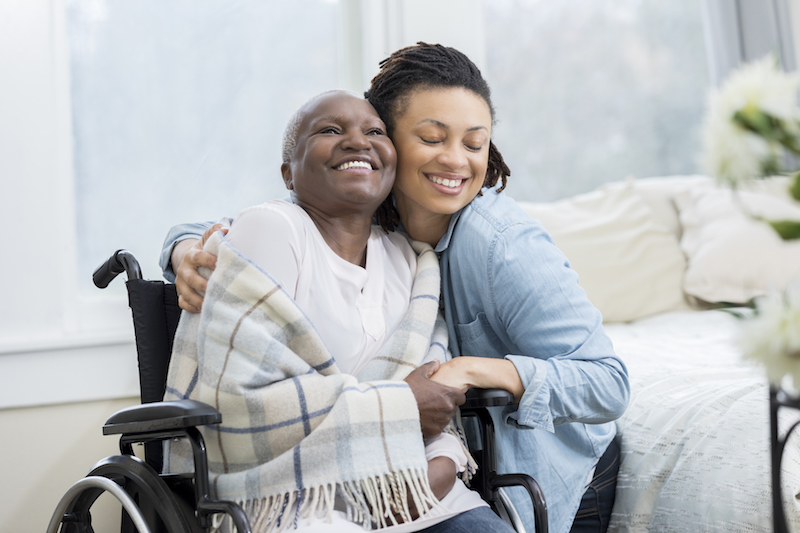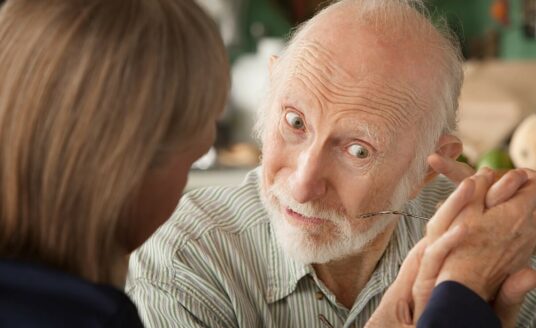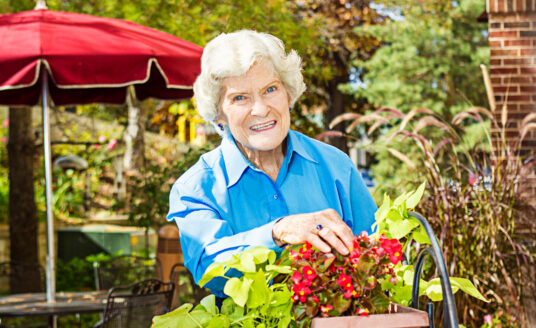Each day, some 40 million Americans are helping senior loved ones with activities of daily living like preparing meals, escorting to doctors’ appointments, monitoring medications, answering questions, and generally supporting minds and bodies that can no longer function well enough to live independently.
However, the physical and emotional price of being a caregiver can be quite high. Stretched between the multiple responsibilities of caring for elderly loved ones, and their own marriage, children and career, caregivers may begin to experience anxiety, depression, economic loss, and increased susceptibility to illness.
Here are some strategies and resources that can provide care for the caregiver.
Change Your Internal Dialogue
Caregivers’ minds are filled with the many and varied details of providing care, and the anxiety that occurs while trying to keep them all straight. This can lead to a constant stream of second-guessing and negative thoughts.
It is important for caregivers to remind themselves of the good that they are accomplishing. It is also helpful to have positive friends and family in touch to remind them of those accomplishments.
Caregivers should make mental notes of the good things that are happening in their lives—a sunny day, a nap, a beautiful piece of music, a refreshing breeze, reading a good book, or a phone call from a friend.
If you are a caregiver, you might want to keep a journal and jot down the good things that are going on around you so that you can savor them later.
Also, take a deep breath and a few minutes to reward yourself for your hard work and sacrifice. You are doing your best, and your hard work is deeply appreciated.
Take Care of Your Health
Trying to maintain a balanced life may seem impossible, but it is very important. You still need a healthy diet and exercise to fuel your body, relieve stress, increase your energy, and help you sleep. If you don’t have a full 30 minutes to exercise at one time during a given day, 10 minutes of exercise three times a day will suffice.
Laugh to Stay Positive as a Senior Caregiver
Laughter has more benefits than you think. It increases your intake of oxygen-rich air, stimulates endorphins in your brain, calms stress, and stimulates circulation.
What makes you laugh? Is it a writer, comedian, TV show, or friend with a great sense of humor? Take a few minutes to read, listen, watch, or call. You’ll benefit from it more than you think.
Pace Yourself
Think of caregiving as an endurance event, like a long-distance run. You cannot continually sprint at top speed from task to task without breaking down. Take breaks, even if just for 5 or 10 minutes. Short breaks can restore energy, reduce stress, improve your health, give you time to focus, and enable you to accomplish more.
Get Organized
You may be a great multitasker, but being a caregiver for a senior adult with physical and cognitive issues presents a multitude of challenges. Instead of mentally exhausting yourself by trying to keep every detail in your head, maintain a planner or calendar of what needs to be accomplished.
Also, a daily routine makes the day go more smoothly and requires less mental energy than constantly re-inventing things while you are going through your day. Just don’t get too organized. Planning everything to the last minute is not only impractical, but it can also increase stress when things don’t go as planned. And they won’t.
Don’t Be “The Lone Ranger”
Caregivers are often their own worst enemy. They tend to have difficulty sharing their duties with others, as they believe that they are the only ones who can perform the caregiving tasks correctly.
They can end up defining their self-worth by the service they provide and invest themselves in it to the point that they block other family members from participating in the care process. As responsibilities multiply, they are no longer able to cope and, eventually, the situation comes crashing down.
Before that happens, ask relatives or friends for help. Maybe they can perform specific tasks like lawn care, grocery shopping, taking the senior to the doctor, staying with the seniors to allow the caregiver a break or help with organizing finances. It’s never a sign of weakness to ask for help, so speak up.
Additionally, there are online and in-person support groups for caregivers. You are not alone.
Eventually, the services of a senior care coordinator may be required. Senior care coordinators are members of a comprehensive team of health-care professionals who work with senior adults to improve and maintain their health, wherever they may live. The family can continue to be involved with caregiving at whatever level they desire, but the senior care coordinator can help navigate the medical system, as well as advise on resources for long-term care, benefits, financial planning, and other concerns.
As the primary caregiver of a senior loved one, you may feel overwhelmed. Bethesda offers services to make caregivers’ lives easier across the St. Louis area. Contact us to learn more about our Respite Care, Care Management, or Home Health Services.
| Whether in independent living, assisted living, memory care, or skilled nursing, Bethesda offers the right amenities, services, programming, and staff to make every day full of purpose. See for yourself and tour our independent living communities, including Bethesda Barclay House – Clayton, Bethesda Gardens – Kirkwood, Bethesda Orchard – Webster Groves, Bethesda Terrace – South County, Village North Retirement Community – Florissant, and The Oaks at Bethesda Villas – Kirkwood/Webster. |
Want to find out more?
If you’d like to stay up to date with Bethesda Health Group, sign up here to receive our blog and newsletters!
"*" indicates required fields
Related Articles
Want to find out more?
If you’d like to stay up to date with Bethesda Health Group, sign up here to receive our blog and newsletters!
"*" indicates required fields



